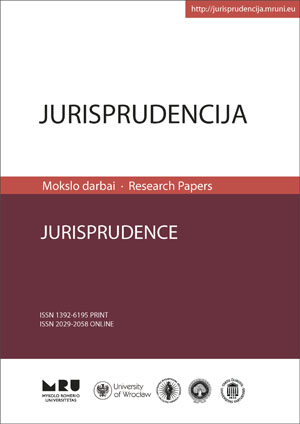VIENODO DARBO UŽMOKESČIO PRINCIPAS UŽTIKRINANT LYGIAS MOTERŲ GALIMYBES DARBO SANTYKIUOSE
THE PRINCIPLE OF EQUAL PAY IN ENSURING EQUAL OPPORTUNITIES FOR WOMEN IN LABOUR RELATIONS
Author(s): Kristina AmbrazevičiūtėSubject(s): Labour and Social Security Law
Published by: Mykolas Romeris University
Keywords: principle of equal pay; Labour Code; non-discrimination; equal opportunities; transparency; pregnant; recently given birth and breastfeeding workers;
Summary/Abstract: Although the employment gap between men and women in Lithuania is insignificant and cannot be considered a relevant social problem, the same cannot be said about their wages. Women’s wages are significantly lower than those of men. Lower wages lead to lower pensions after active participation in the labour market ends and increase the risk of poverty for women. This article analyses the legal measures enshrined in the legislation of the European Union and Lithuania aimed at reducing the wage gap between men and women and identifies problematic legal provisions.From a formal point of view, the principle of equal pay is sufficiently regulated in Lithuanian national law, and no significant problems have been identified in Lithuanian case law – which is mainly in line with the objectives and direction of legal regulation. On the other hand, despite considerable efforts that have been made in recent years to implement transparency in the wage system, there are still some unresolved issues. One of them is additional guarantees for pregnant women, those who have recently given birth, and breastfeeding mothers, which limit the opportunities for these employees to receive higher wages. The implementation of the Labour Code norm, which ensures the right of women to receive adequate wages after pregnancy, childbirth, and childcare leave, also causes legal uncertainty.
Journal: Jurisprudencija
- Issue Year: 29/2022
- Issue No: 2
- Page Range: 232-248
- Page Count: 17
- Language: Lithuanian

